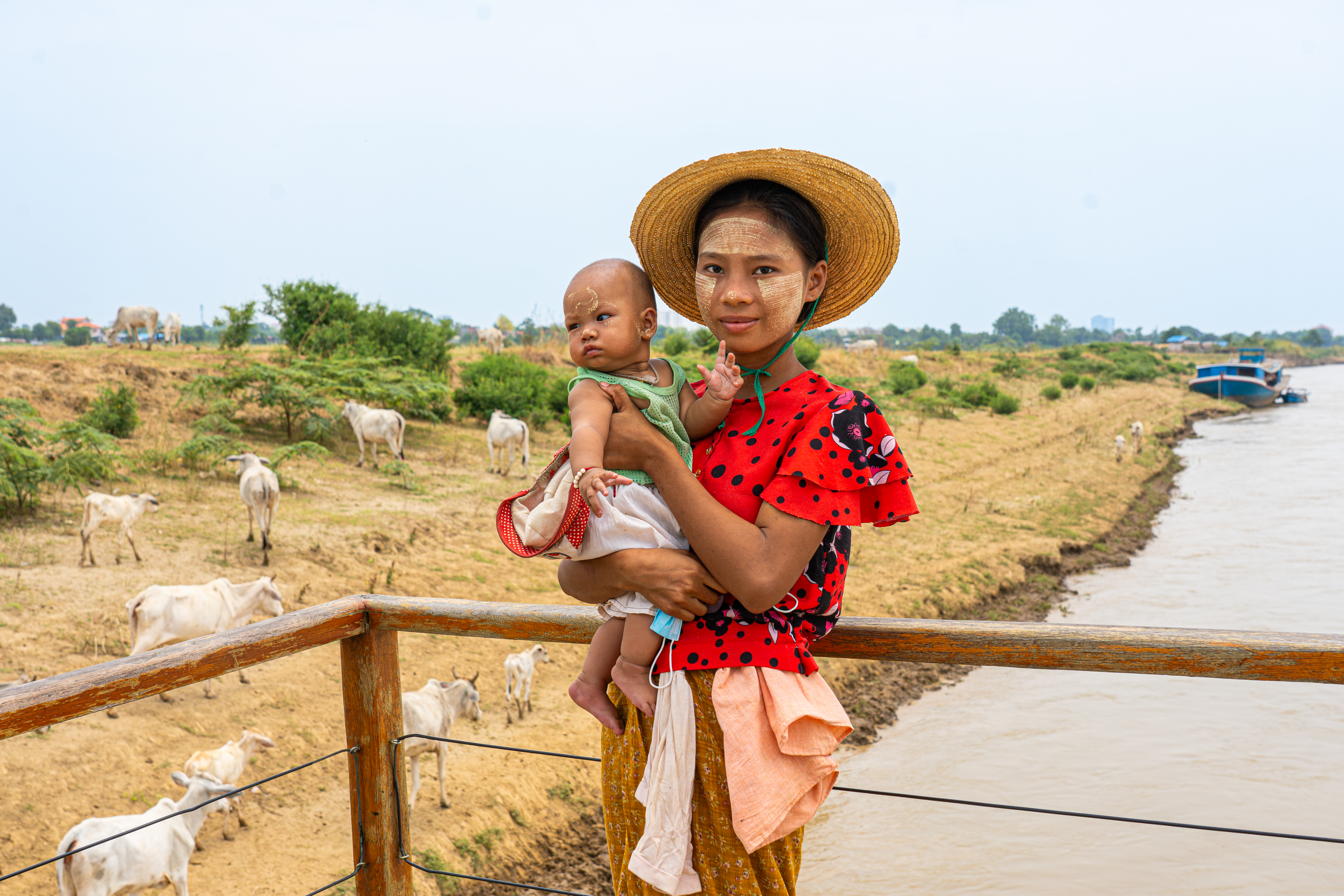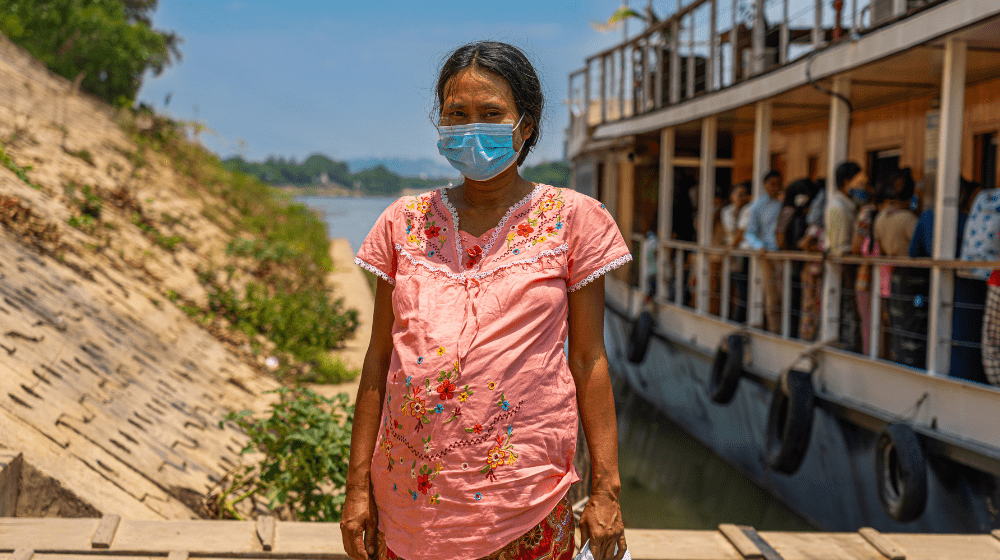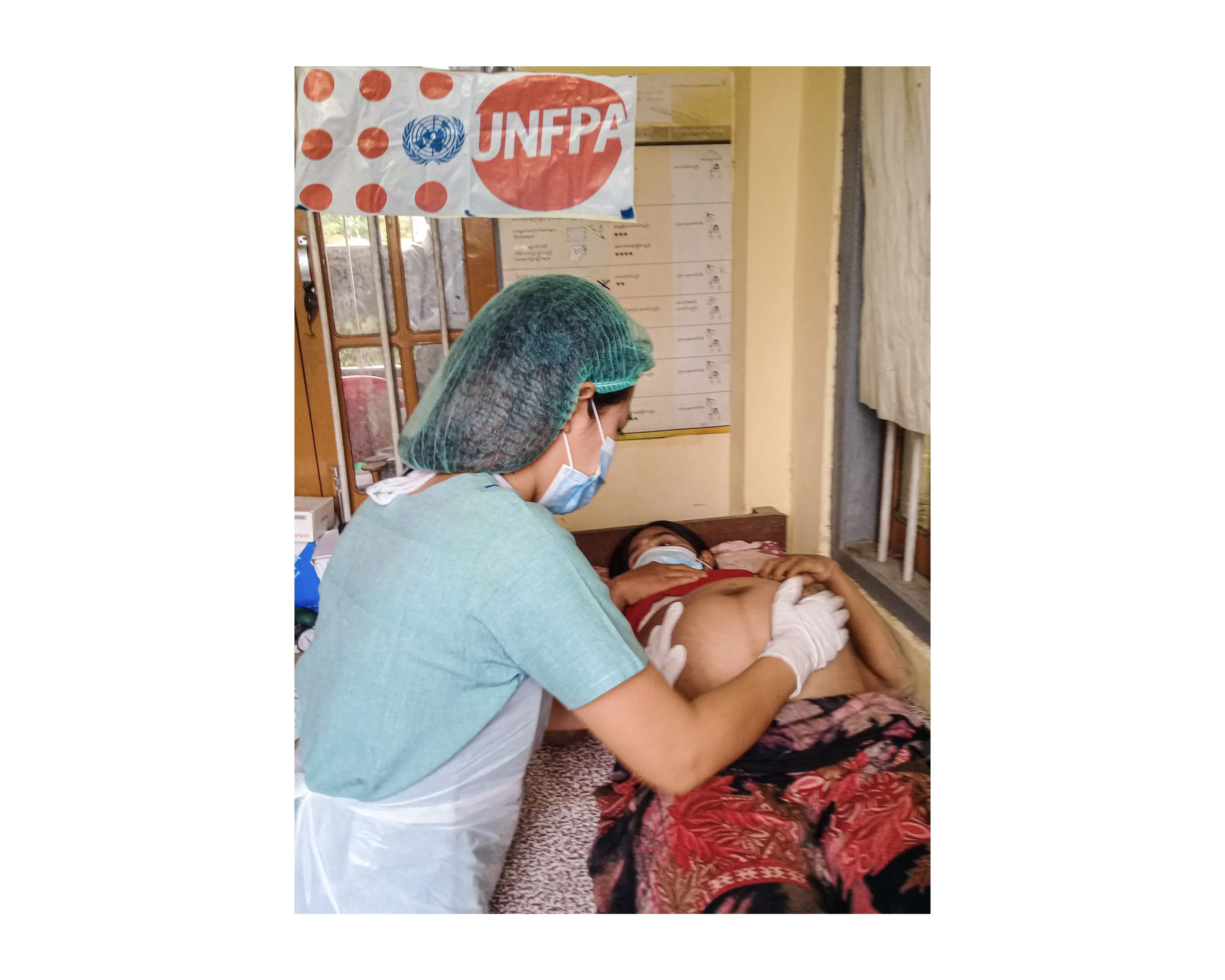Amidst the serene but isolating waters of Myanmar's Irrawaddy River, an innovative mobile health service sails to the neediest communities, bringing critical healthcare where traditional facilities are hard to reach. The floating clinics initiated by AFXB Myanmar, with the support of UNFPA, navigate the river to deliver essential health services, focusing on the urgent needs of women and girls affected by the humanitarian crisis in the country.
"For women like us, living in the village, far from the health facilities, each pregnancy is filled with anxiety. In emergencies, we often feel helpless, which adds immense stress and concern for the safety of both ourselves and our babies." — Thiri, an expectant mother from a riverside village in Mandalay.
The ongoing conflict exacerbates the availability of essential health services, disrupting healthcare delivery and heightening risks for women, particularly pregnant women in affected areas. According to the UN inter-agency estimation, the maternal mortality ratio for 2020 stands at 179 deaths per 100,000 live births, significantly influenced by lack of access to reproductive health services, and compounded by poverty. According to Myanmar Demographic Health Survey (2015-2016), the availability of skilled birth attendants is limited, with only three-fifths of births (60%) being attended by skilled providers such as nurses, midwives, and doctors. Traditional birth attendants still assist 29% of births. These figures highlight the significant need for maternal healthcare services, especially in remote and inaccessible areas where women lack access to any medical facilities. These challenges are intensified by current conflict and instability, which obstruct access to necessary health care and amplify the disparities between rural and urban health outcomes.
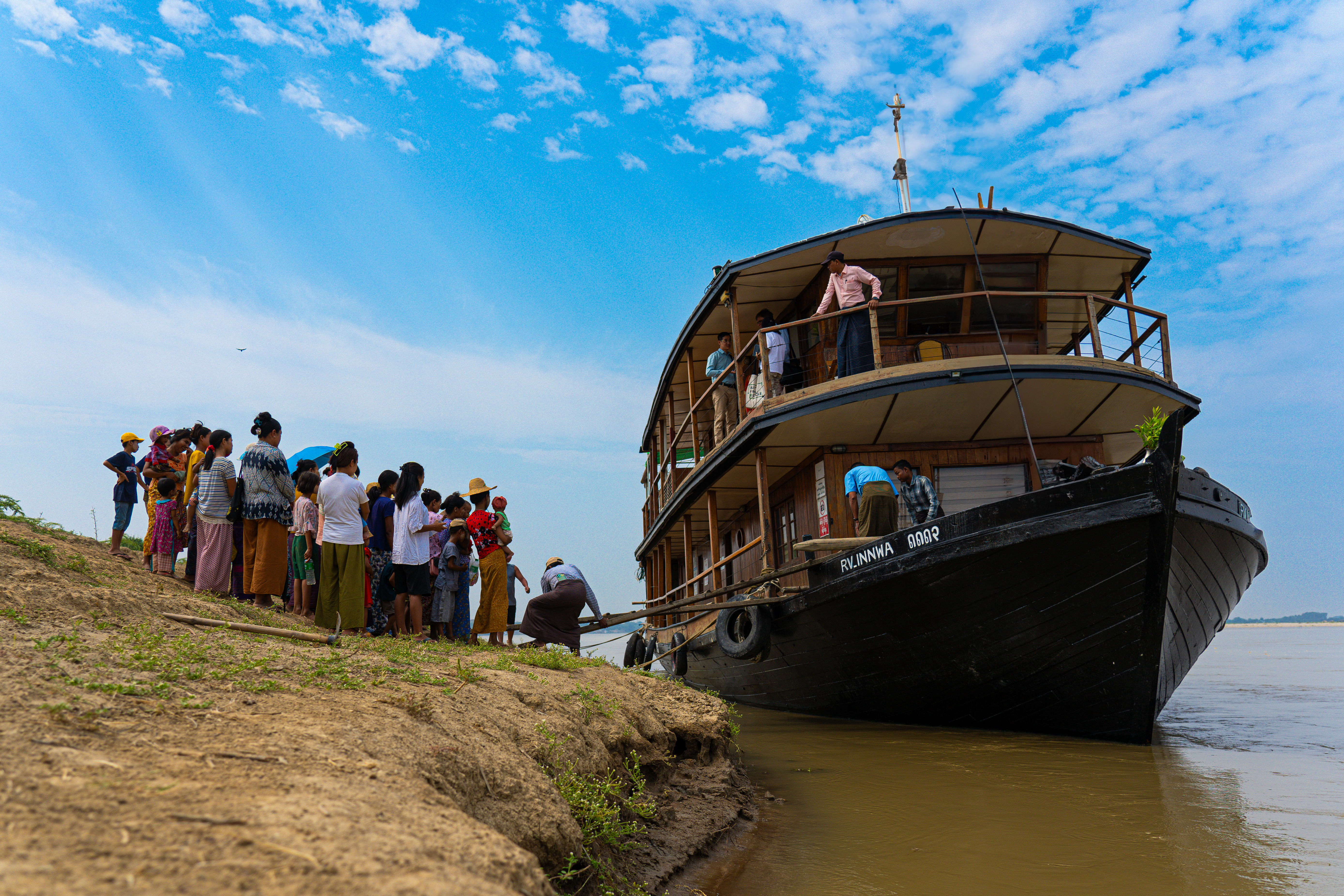
The floating clinics, RV-Inwa and RV-Mingun, serve as crucial platforms for addressing these gaps and challenges. Staffed by dedicated teams of healthcare professionals, the clinics bring primary health care, maternal health care, including prenatal, postnatal, and emergency obstetric care to those in need in the communities along the river. In addition, family planning services, minor surgeries, and regular health follow-ups for chronic and non-communicable diseases are also provided at the clinics. Between 2021 and 2023, two boats conducted a total of 50 medical missions along the river, providing health services to 38,627 individuals. 894 women received antenatal care as part of these missions.
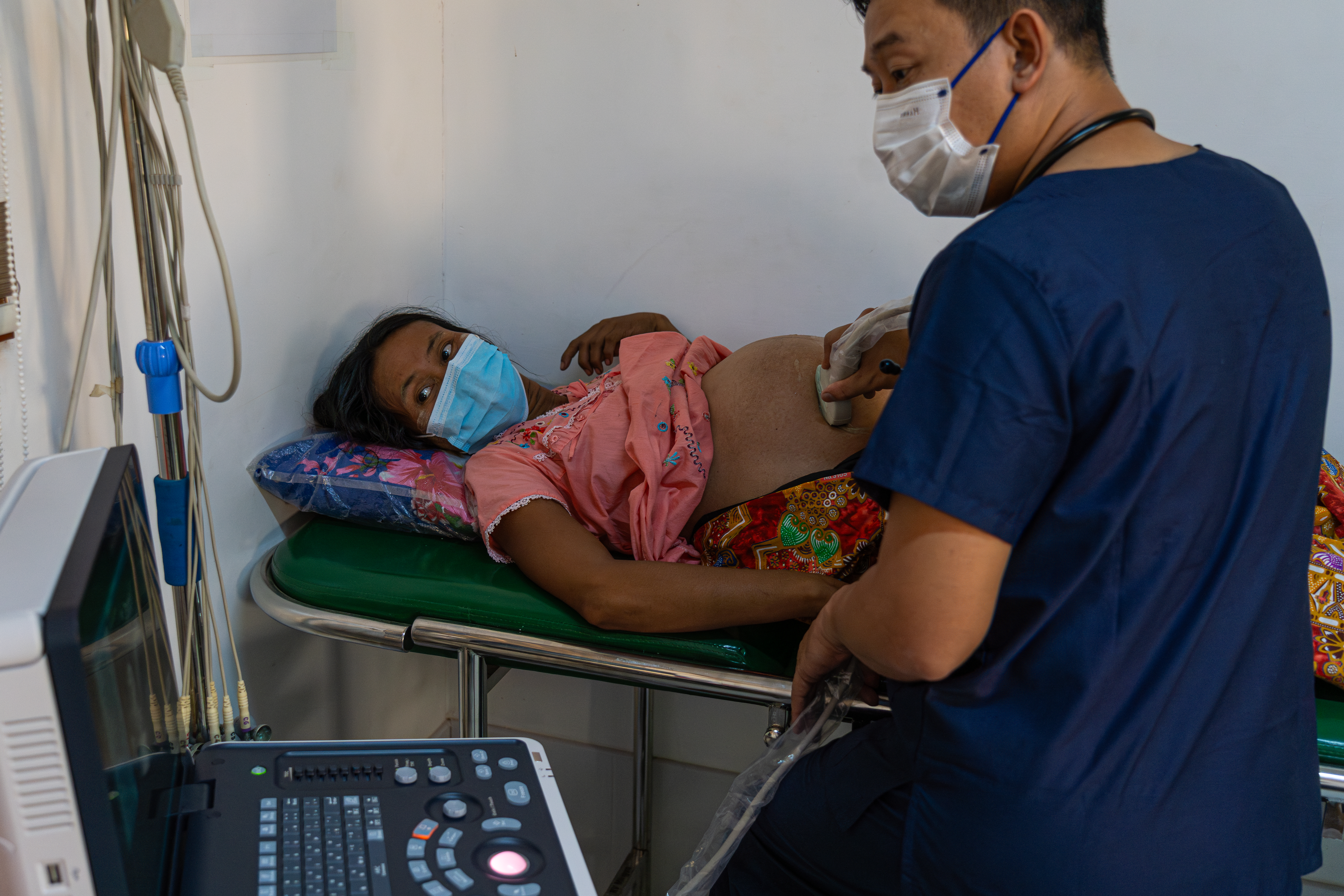
"Navigating the waters along the Irrawaddy, we deliver more than healthcare and medication; we deliver hope. We provide a commitment to ensuring a safer pregnancy and childbirth for women who would otherwise confront these challenges alone," said Dr. Shwe Paing Oo, Medical Officer of the RV-Inwa.
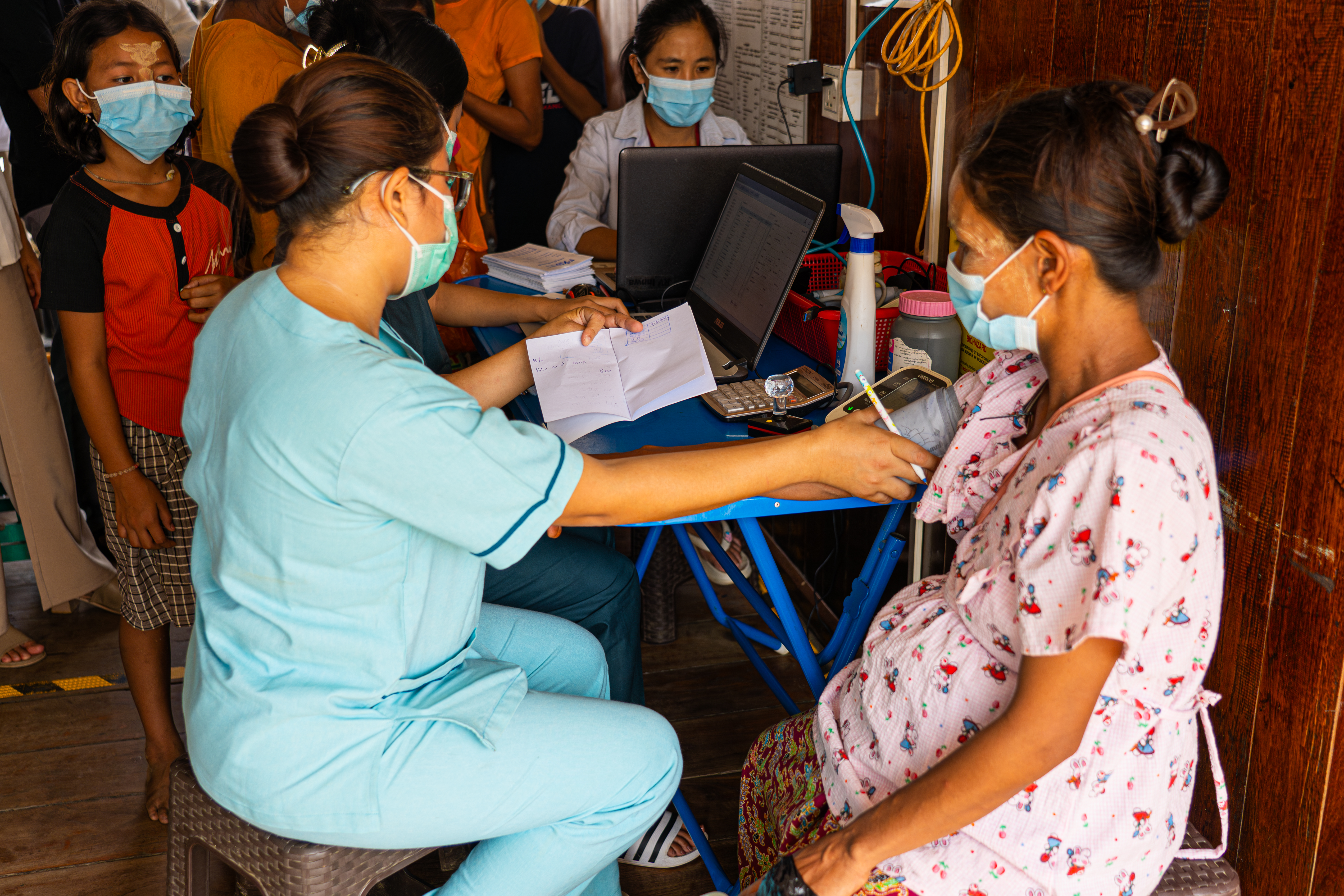
“It takes a 2 hours’ motorbike drive to get to the nearest health facilities. With my 7 -month pregnancy, it is just not safe to do that in order to receive maternal health care. I’ve been worrying for my baby all the time. Now, thanks to the floating clinic, I am getting proper antenatal care. I feel safe for me and my baby.” Thuzar, an expectant mother from a riverside village in Mandalay
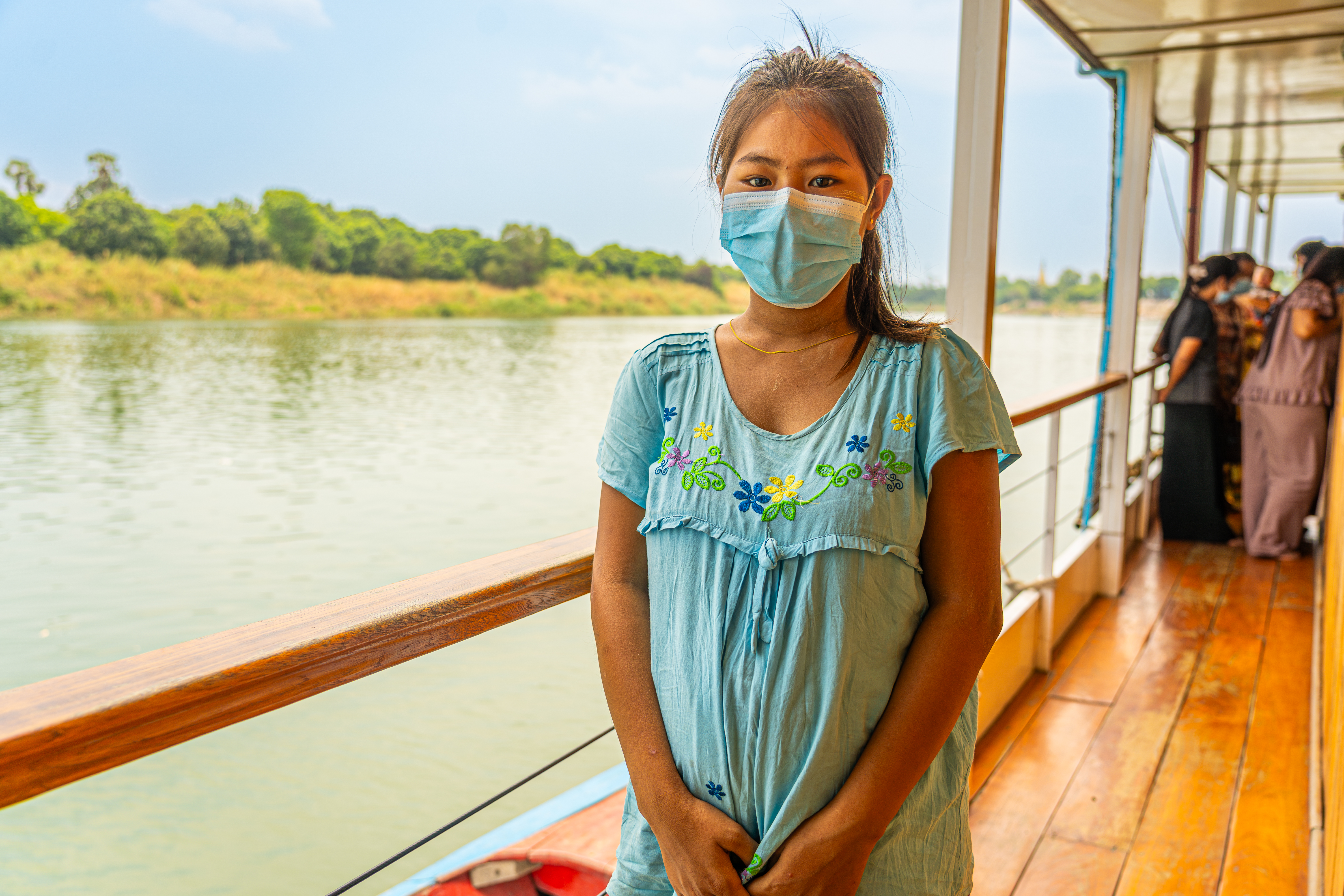
"I'm in my eighth month of pregnancy. Our income barely covers our basic needs, and we can't afford the healthcare and medicines I need. When I got free of charge assistance at the floating clinic, I felt so thankful to the health team. They face many challenges in helping us, especially under these difficult times, but their support really saves our lives when we can hardly pay for healthcare." Nyo Nyo, an expectant mother from one of the riverside villages in Mandalay.
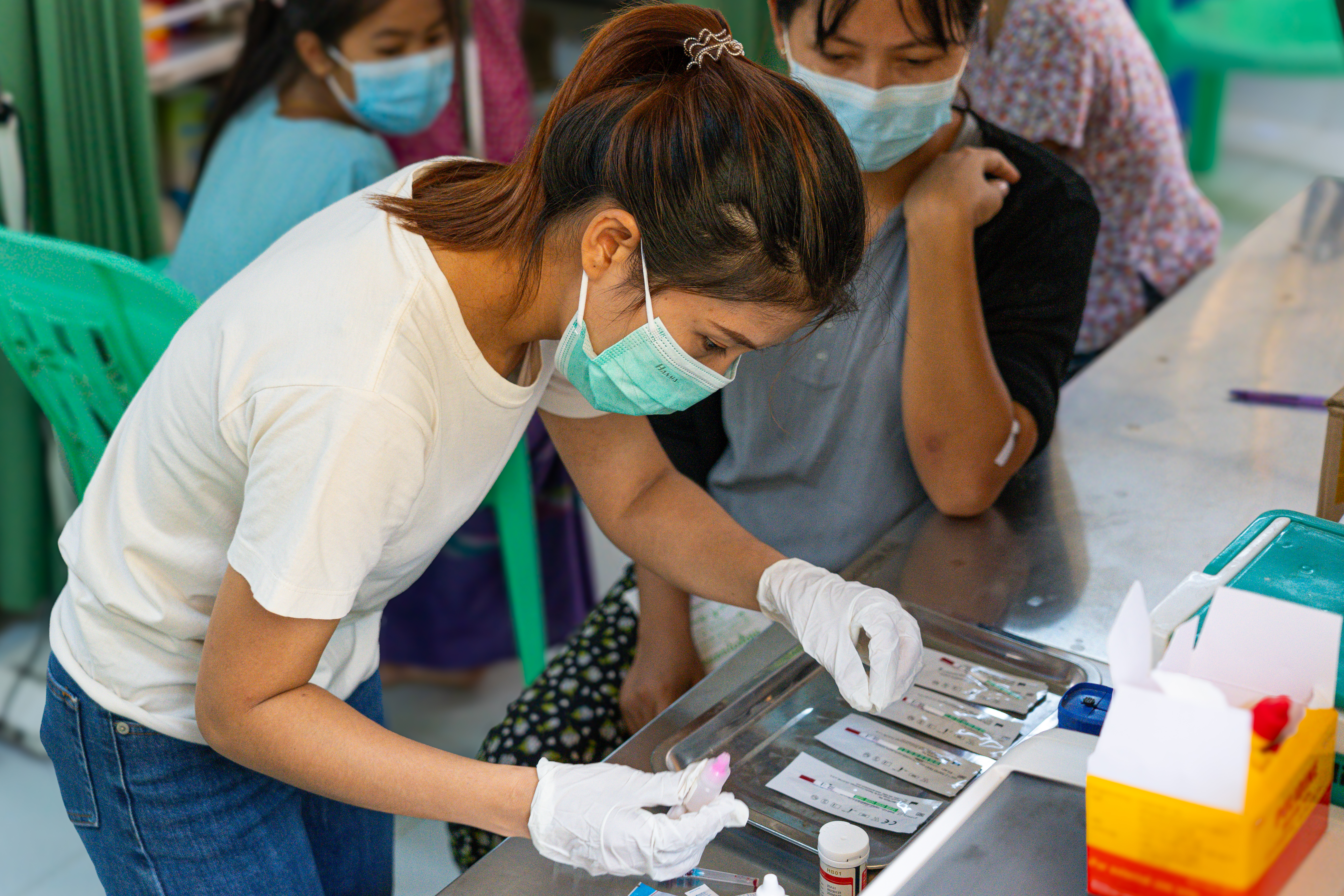
"I vividly recall the occasion on which our team rescued a woman who was suffering from retained placenta during childbirth. We immediately stabilized the situation and facilitated her transfer to the hospital right away, ensuring the well-being of both her and the newborn. I take immense pride in contributing to the committed team aboard the vessel, dedicated to serving the community during these times of crisis." Dr Saw Lwin Tun, Team Leader and Medical Officer, RV Min Gun.
The women and girls in these communities are at risk due to a lack of knowledge about health, including reproductive health and family planning services. The clinics are also essential for educating communities about reproductive health. This knowledge empowers women about their reproductive health and rights and enables them to make informed choices, which is particularly important where misconceptions and traditional practices often put them at higher risk.
"Learning about family planning at the floating clinic has changed everything for us. Now, I make informed decisions that ensure a healthier, more secure future for my family." — Ngu War, a woman from a riverside community
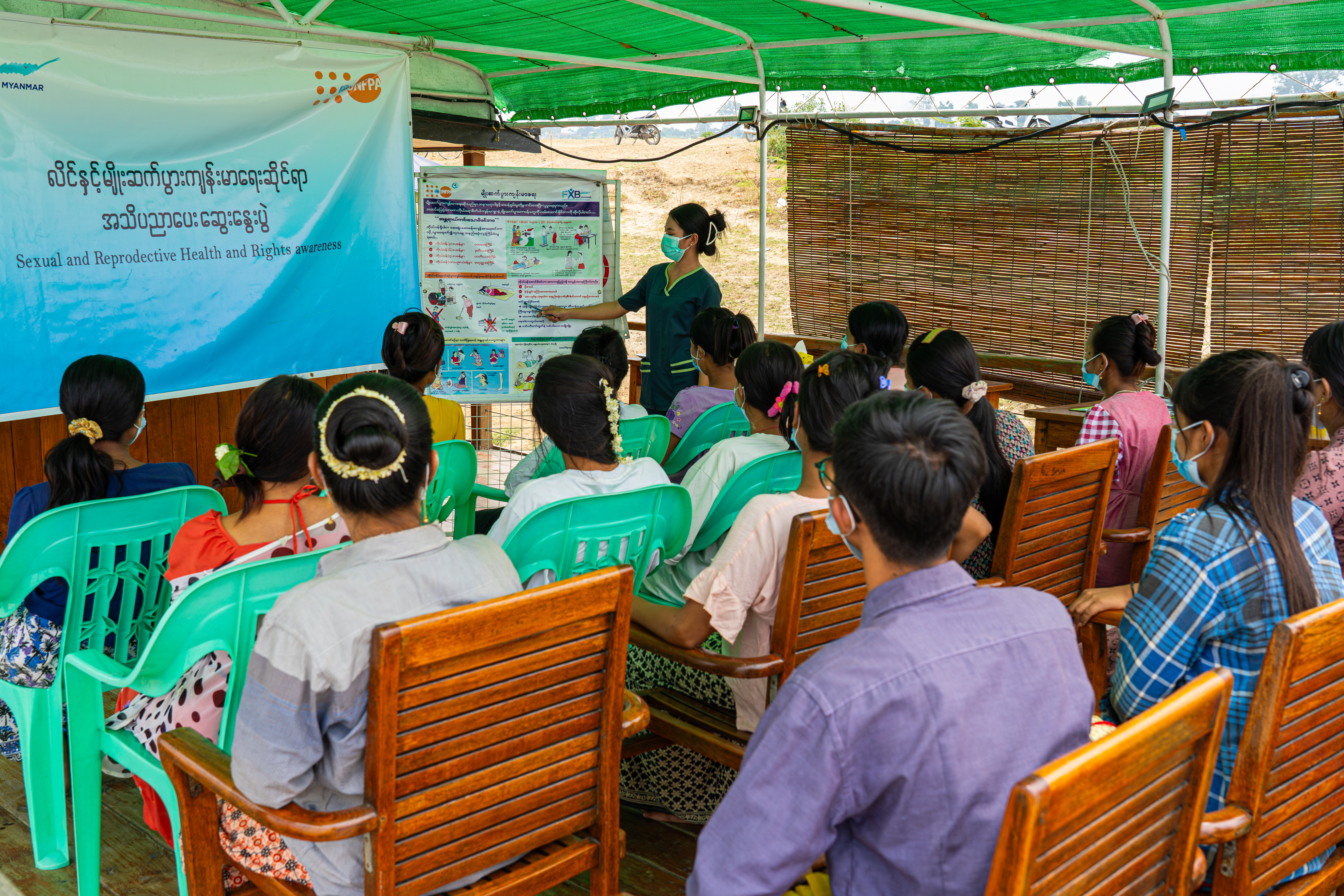
Additionally, the floating clinics integrated Gender-Based Violence (GBV) and Sexual and Reproductive Health Rights (SRH) services such as awareness raising, parental and education sessions, GVB referrals, etc. Since 2021, nearly 10 thousand youth from villages along the river have received SRHR training and awareness raising sessions provided by the floating clinics.
The presence of the floating clinics is a beacon of hope for the riverside communities. Women, often accompanied by their families, receive health care that is otherwise out of reach, fostering not only healthier communities but also strengthening community ties.
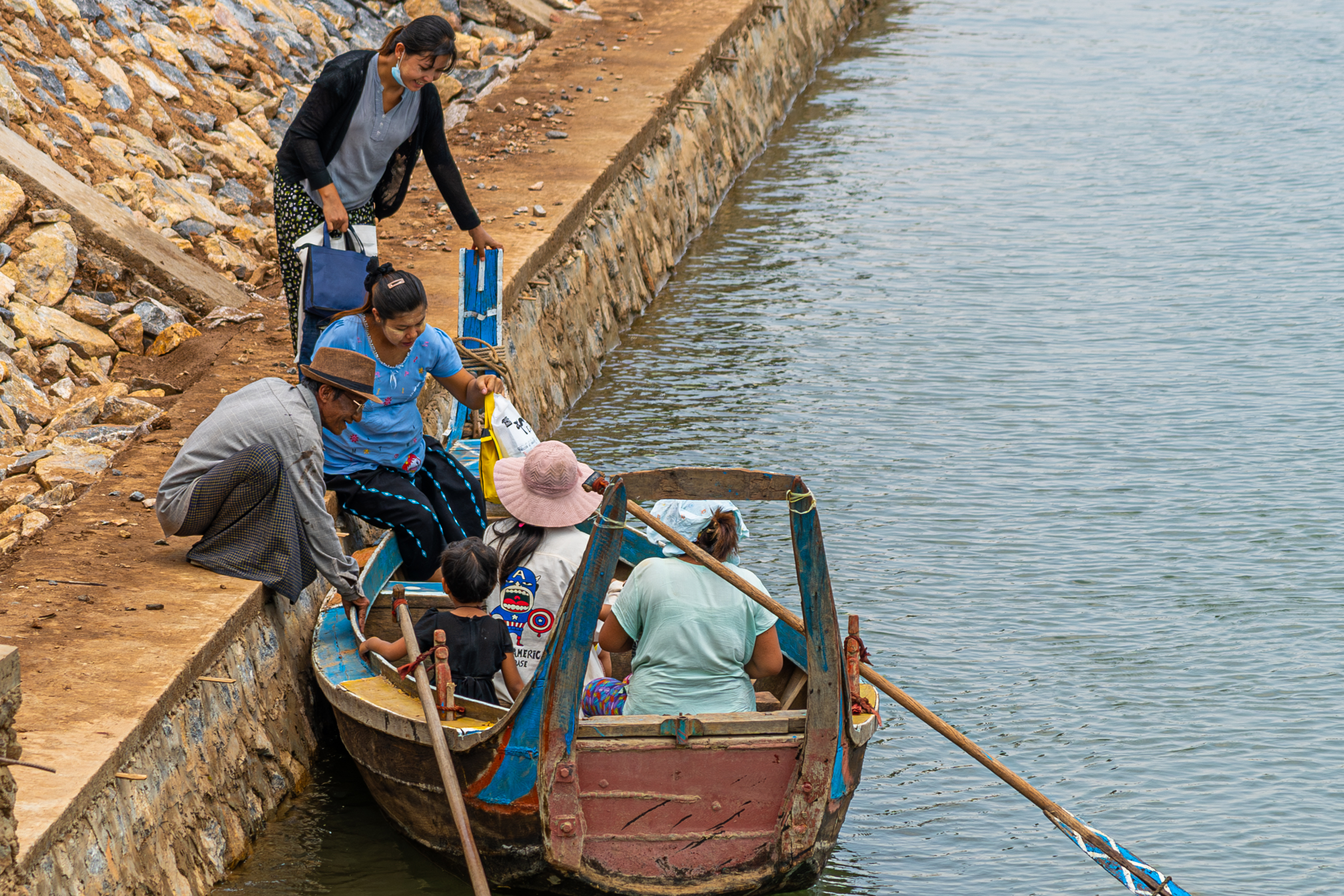
Despite the logistical and security challenges involved in operating under a humanitarian context, the commitment of the floating clinic staff remains unwavering. "The boat operates 10-15 days a month, providing care for over 1000 patients. Throughout the different seasons, we face many challenges on the river while delivering our services, but each challenge we navigate is worth the lives we can save and improve,” said Dr. Saw Lwin Tun, Medical Officer of RV Mingun.
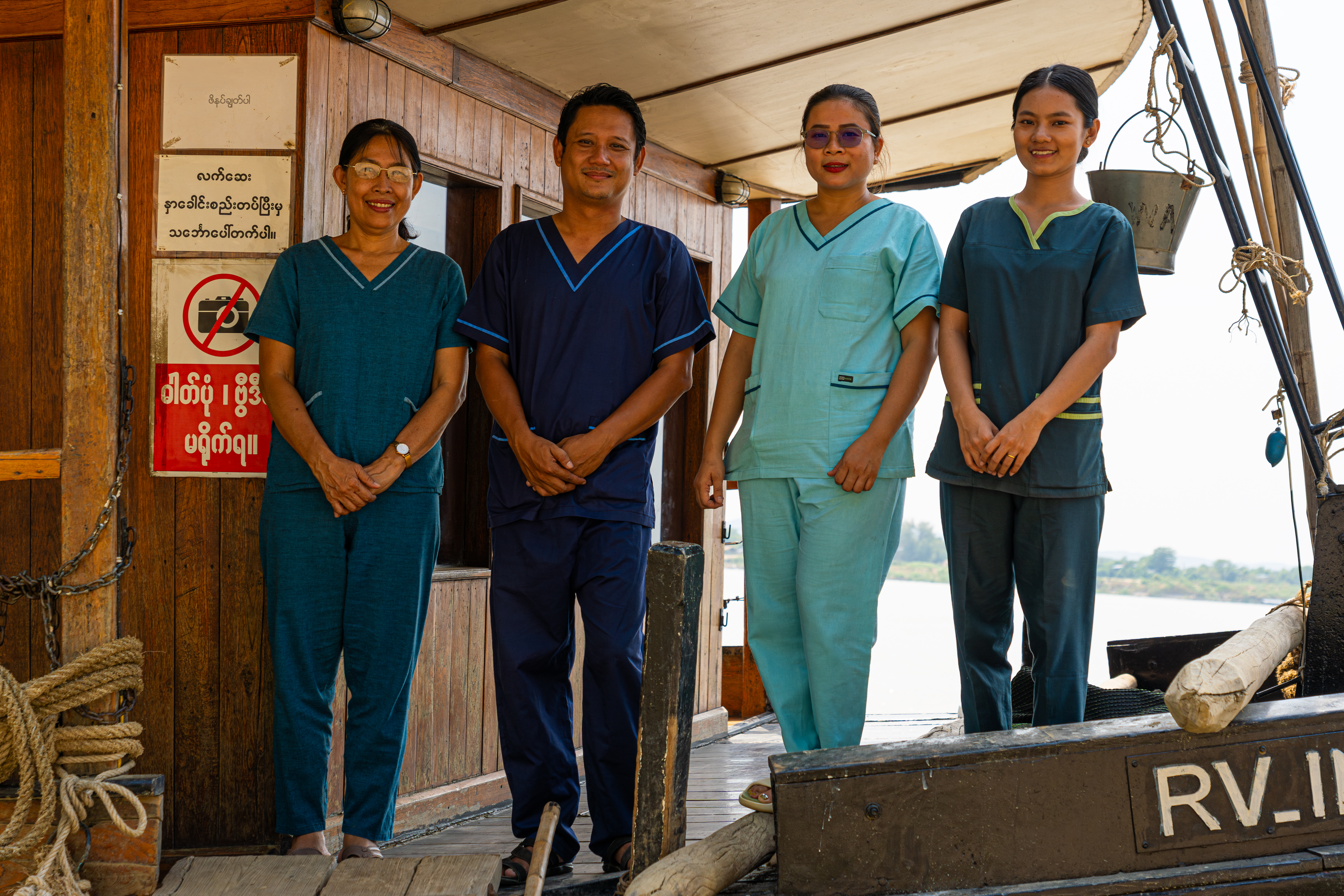
Floating clinics are more than just an innovative healthcare delivery method. They truly are a crucial part of the healthcare ecosystem in Myanmar, particularly in the face of the ongoing crisis. These clinics not only deliver healthcare but also hope and resilience, ensuring that women and girls in the most remote areas have access to the lifesaving services they urgently need.
"Before the floating clinic came to us, every moment of my pregnancy was shadowed by fear, knowing how far we were from the hospital. The day I received health care on the boat near our home, it was as if a weight was lifted—not just from my shoulders but from the entire community. It means we and our babies are protected." — Phyo, a mother from a riverside village in Mandalay.
